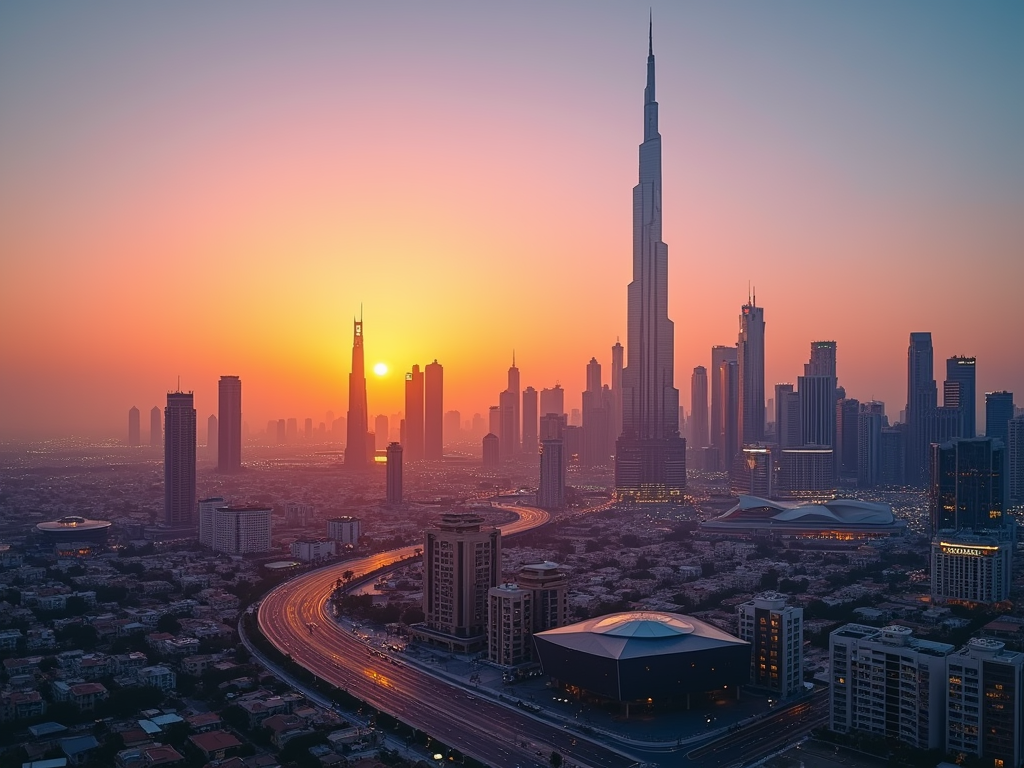Dubai stands as a beacon of financial growth in the Middle East and North Africa (MENA) region, playing a pivotal role in shaping its economic landscape. This city has transformed into a global financial hub, attracting investment, talent, and businesses from around the world. Dubai’s strategic location, robust infrastructure, and business-friendly policies have significantly contributed to its prominence in the financial sector. Furthermore, its thriving economy serves as a catalyst for growth throughout the MENA region, influencing trade, investment, and overall economic stability. In this article, we will explore the various factors that establish Dubai’s critical role in the financial growth of the MENA region.
Dubai’s Strategic Location and Connectivity

One of the significant factors contributing to Dubai’s financial growth is its strategic geographic location. Situated at the crossroads of Europe, Asia, and Africa, Dubai enables businesses to operate on a global scale with ease. The extensive air and sea connectivity further enhance its status as a central hub for trade and commerce. The following aspects underline Dubai’s connectivity:
- World-Class Airports: Dubai International Airport is one of the busiest airports globally, facilitating millions of passengers and cargo annually.
- Major Shipping Ports: The Port of Jebel Ali is the largest man-made harbor in the world, allowing for efficient import and export processes.
- Infrastructure Development: Continuous investment in infrastructure ensures seamless integration within regional and global markets.
Such strategic connectivity not only attracts multinational corporations but also fosters business tourism, significantly boosting Dubai’s economy and thereby the entire MENA region.
Business-Friendly Regulations and Economic Diversification

Dubai’s commitment to creating a business-friendly environment through favorable regulations cannot be overlooked. The government has introduced various initiatives designed to attract foreign investment, including free trade zones and tax incentives. These measures play a crucial role in economic diversification by reducing dependency on oil revenues and encouraging the growth of sectors such as tourism, technology, and finance. The benefits of these regulations include:
- No Corporate Tax: Specific free zones offer zero corporate tax for a specified period, appealing to startups and SMEs.
- 100% Foreign Ownership: Foreign investors can fully own their businesses in certain areas, fostering a sense of security and long-term investment.
- Efficient Licensing Processes: Streamlined procedures make it easier for investors to establish and operate businesses swiftly.
This progressive approach not only enhances economic growth in Dubai but also sets a precedent for neighboring countries to follow suit, furthering the financial advancement of the MENA region.
Investment in Technology and Innovation
Dubai has made substantial investments in technology and innovation, setting itself apart as a leader in the digital economy. The government has launched initiatives such as Dubai Smart City to integrate technology within sectors, enhancing efficiency and service delivery. Some notable points include:
- Fintech Innovations: Dubai’s financial sector supports fintech startups through incubators and accelerators, fostering advancement in mobile banking, cryptocurrency, and blockchain technologies.
- Smart Infrastructure: Investments in smart technology applications improve urban living, making Dubai a desirable location for tech-based businesses.
- Public-Private Partnerships: Collaborations between the government and private sectors drive technological advancements and innovation.
As a result of these investments, Dubai positions itself as a global competitor in various tech sectors, helping to drive financial growth in the wider MENA region.
Robust financial institutions constitute another integral part of Dubai’s financial landscape, providing essential services that drive economic growth. The presence of major banks, investment firms, and insurance companies creates an environment conducive to local and international investments. Here are some ways these institutions contribute:
- Capital Mobilization: Financial institutions play a key role in mobilizing capital for various sectors, ensuring resource allocation where needed.
- Financial Services: Comprehensive financial services like trade financing and deposit facilitation support business operations.
- Risk Management: Insurance and risk management services help businesses operate confidently in a volatile economic environment.
This strong framework of financial institutions bolsters Dubai’s reputation as an economic powerhouse within the MENA region, attracting global business investments.
Conclusion
In summary, Dubai stands as a crucial player in the financial growth of the MENA region, leveraging its strategic location, regulatory framework, technological investments, and robust financial institutions. As others in the region look to replicate Dubai’s success, the city will likely continue to evolve, fostering an environment of growth, innovation, and economic partnerships. The multifaceted approach adopted by Dubai not only enhances its own financial stature but also significantly contributes to the advancement of the entire MENA region, establishing a strong foundation for future economic prosperity.
Frequently Asked Questions
1. Why is Dubai considered a financial hub in the MENA region?
Dubai is recognized as a financial hub due to its strategic location, favorable business regulations, and a diverse economy that attracts global investments.
2. What are the main industries driving financial growth in Dubai?
The main industries include tourism, technology (fintech), real estate, and trade, all of which contribute significantly to Dubai’s economy.
3. How does Dubai’s infrastructure support its financial sector?
Dubai boasts world-class airports and ports, facilitating easy trade and travel, while ongoing infrastructure developments enhance connectivity and business operations.
4. What role do financial institutions play in Dubai’s economy?
Financial institutions provide essential services, mobilize capital, and offer risk management, thereby supporting business operations and investments.
5. How does Dubai promote technological advancements?
Dubai promotes technological advancements through various initiatives focused on digital transformation, smart city projects, and support for fintech startups.
